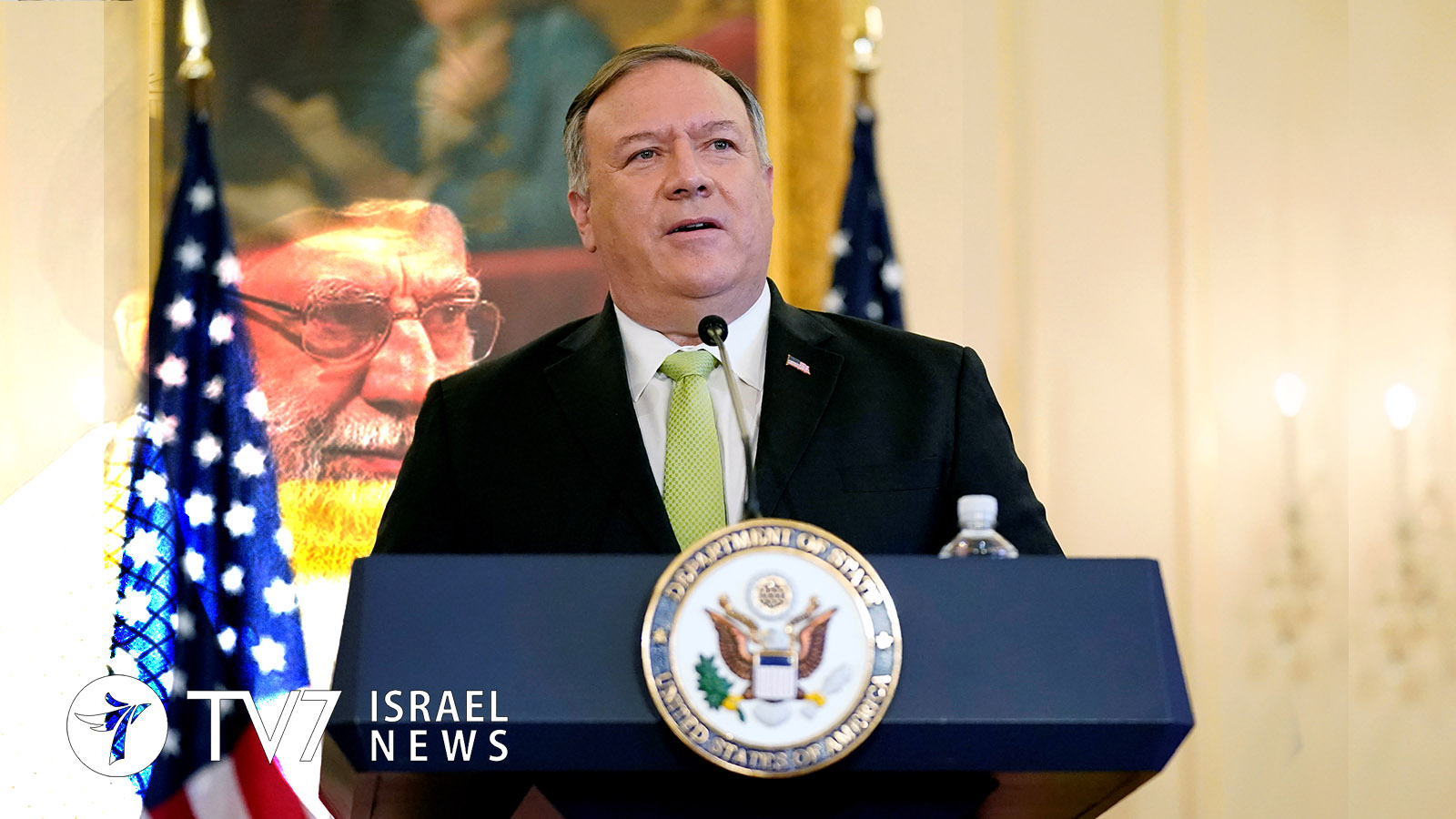The United States slapped fresh sanctions on Iran’s financial sector yesterday, targeting 18 banks in an effort to further choke off Iranian revenues as Washington ramps up pressure on Tehran weeks ahead of the U.S. election.
The move freezes any assets by the blacklisted institutions held in the U.S. and generally bars Americans from dealing with them, while extending secondary sanctions to those who continue to conduct business with them.
The following were named in the U.S. action: Amin Investment Bank, Bank Keshavarzi Iran, Bank Maskan, Bank Refah Kargaran, Bank-e Shahr, Eghtesad Novin Bank, Gharzolhasaneh Resalat Bank, Hekmat Iranian Bank, Iran Zamin Bank, Karafarin Bank, Khavarmianeh Bank, Mehr Iran Credit Union Bank, Pasargad Bank, Saman Bank, Sarmayeh Bank, Tosee Taavon Bank, Tourism Bank and Islamic Regional Cooperation Bank.
This latest measure in the U.S. so-called ‘maximum pressure campaign’ mean that foreign banks would risk losing access to the U.S. market and financial system if they violated its terms.
In a communique sent to TV7, U.S. Secretary of State Mike Pompeo said that “the United States is identifying the Iranian financial sector as subject to the terms of Executive Order (E.O.) 13902 and sanctioning 18 major Iranian banks, further depriving the Islamic Republic of Iran of funds to carry out its support for terrorist activities and nuclear extortion that threatens the world. These sanctions will take effect following a 45-day wind down period. This action includes imposing sanctions on 17 Iranian banks pursuant to E.O. 13902 for operating in Iran’s financial sector, or for being owned or controlled by sanctioned Iranian banks, and the designation of an additional Iranian military-affiliated bank pursuant to E.O. 13382, a counter-proliferation authority. Our maximum economic pressure campaign will continue until Iran is willing to conclude a comprehensive negotiation that addresses the regime’s malign behavior.”
The top U.S. diplomat went on to say, that, “In March, while COVID-19 was spreading through Iran, regime officials asked Supreme Leader Khamenei to urgently release funds to respond to the outbreak. Despite Khamenei’s assurances to do so, Iran’s Health Minister revealed last week that the Health Ministry had received only a small fraction of those funds. The Health Minister asked, “What are they using it for that could be more important?” We know the answer. In 2018 and 2019, Khamenei raided $4 billion from the Iranian National Development Fund for military expenses. And while the Health Ministry was pleading for resources to protect the Iranian people from the outbreak, Khamenei instead increased funding for the Islamic Revolutionary Guard Corps, a designated Foreign Terrorist Organization, by a third, and doubled the funding for the regime’s Basij forces that terrorize the Iranian people every single day.”
According to Pompeo, the U.S. sanctions “are directed at the regime and its corrupt officials that have used the wealth of the Iranian people to fuel a radical, revolutionary cause that has brought untold suffering across the Middle East and beyond. The United States continues to stand with the Iranian people, the longest-suffering victims of the regime’s predations. Today’s actions pursuant to E.O. 13902 do not affect existing authorizations and exceptions for humanitarian exports to Iran, which remain in full force and effect. This action also does not affect activities authorized by the Iran Transactions and Sanctions Regulations (ITSR). For additional information, please see the Department of the Treasury and OFAC websites. We are committed to continuing the Iranian people’s access to humanitarian goods and other essential goods and services, and we reaffirm the United States’ offer to assist Iran in its response efforts to the COVID-19 outbreak.”
The Treasury Department underscored in a statement the prohibitions did not apply to transactions to sell agricultural commodities, food, medicine or medical devices to Iran, as the need for humanitarian goods in the Islamic Republic is understood.
Iranian Foreign Minister Mohammad Javad Zarif nevertheless accused the United States of targeting Iran’s ability to pay for basic necessities during the COVID-19 pandemic. “U.S. regime wants to blow up our remaining channels to pay for food & medicine,” Zarif posted on Twitter, adding that, “Conspiring to starve a population is a crime against humanity.”
Downplaying the punitive U.S. measures as a political venture, Iranian Central Bank governor Abdolnaser Hemmati said that “rather than having any economic effect, the American move is for U.S. domestic propaganda and political purposes, and shows the falsity of the human rights and humanitarian claims of U.S. leaders.”
Foreign Ministry Spokesman Saeed Khatibzadeh went so far as to accuse Israeli Prime Minister Benjamin Netanyahu of being behind the new sanctions, by writing in a Tweet that the move was intended to “lure (U.S. President Donald) Trump into doubling down on inhumane targeting of ordinary Iranians.”
Elizabeth Rosenberg of the Center for a New American Security think tank told Reuters that the Trump Administration wants “to make it very difficult for any future president to be able to unwind these measures and engage in nuclear diplomacy,” in an allusion to the possibility that Democratic candidate Joe Biden could defeat Republican President Trump in the November 3rd election.
Biden, who served as Vice President when the Obama Administration negotiated the multilateral Joint Comprehsive Plan of Action nuclear accord, has said he would rejoin the deal if Iran first resumed compliance with it.
Tensions between Washington and Tehran have soared since Trump unilaterally withdrew in 2018 from the 2015 Iran nuclear deal and re-imposed American sanctions that had been eased. The reinstated masures target everything from oil sales to shipping and financial activities.
